How to Plan the Perfect Egypt Tour from the USA
Are you dreaming of travelling to Egypt? Egypt has so much to offer, from the Pyramids of Giza to the Nile River and the country's rich history. However, planning the perfect Egypt tour can be overwhelming, especially travelling from the USA. But fret not; we've got you covered! In this post, we'll share some essential tips on planning the perfect Egypt tour from the USA, including the best time to visit, visa requirements, and currency exchange tips. So, please sit back, relax, and let's plan your dream Egypt tour together!

A brief overview of the importance of planning a trip to Egypt
When it comes to planning an overseas trip, Egypt is a place that should be on your list. Our research reveals that Egypt is one of the most popular countries in the world for tourism because of the wide range of activities that it offers, including sunbathing, water sports, sightseeing, authentic experiences, and cultural immersion. However, just like any other trip, planning is critical.
Having your trip well-planned means that you can enjoy your trip fully without worrying about anything. A well-planned trip is also less likely to encounter any surprises or risks. You'll be able to save time, money and create an itinerary that caters to your needs and interests.
Moreover, having a well-organized itinerary will allow you to take advantage of everything Egypt offers and help you make the most of your time here. You can visit all the significant attractions and historical sites you might have on your list and experience the beauty of Egyptian culture.
As a quote goes, “The best preparation for tomorrow is doing your best today.” So, get ready with the necessary documents, including your passport and visa, and exchange currency, check out the best accommodation options to fit your needs and budget, and plan out your itinerary ahead of time.
Planning a trip to Egypt is not just about organizing but also about exploring the opportunities to experience the culture and history of this magnificent country. Don't wait any longer. Start planning your trip and make unforgettable memories you can cherish forever. [1][2]
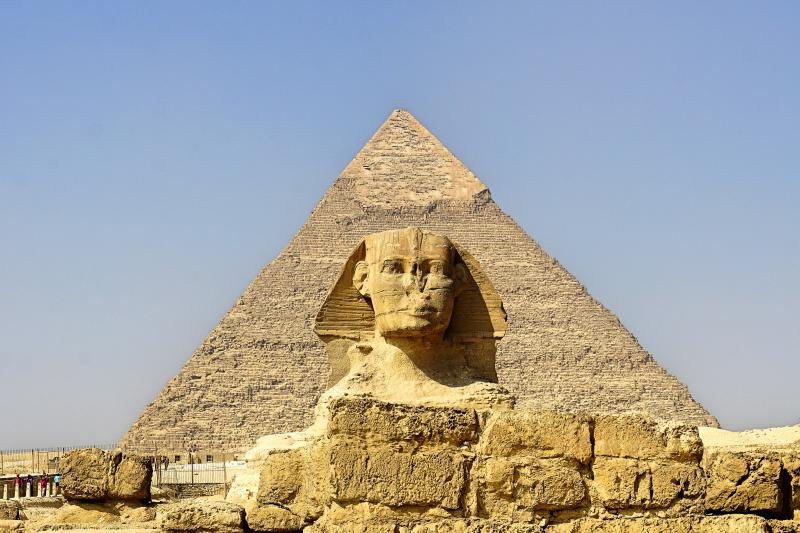
Overview of the best time to travel to Egypt and why
Egypt is a popular destination year-round, but the best time to travel to Egypt is between October and April. During this time, the temperatures are cooler but still pleasantly warm across the country. This makes exploring the busy streets of Cairo, visiting the Pyramids in the desert, and exploring ancient Pharaonic tombs more comfortable and enjoyable. The summer season is from May to September, and it can be hot, but the high temperatures are alleviated by dry air, air conditioning, fewer visitors, and lower prices. This means that summer is still a viable season for your trip. There also tends to be a bit of a breeze on the Nile, making a river cruise a good choice during this period.
While January through March is usually sunny and warm with occasional rain, it is within the peak travelling season, so hotels, cruises, and sites can get very busy, particularly around the new year. The weather gets warmer but is still pleasant during April and May, making this a popular time to visit. However, a minor but extremely hot sandstorm, known as the Khamsin Wind, sweeps across Egypt for a few days during April and May, but it does not usually cause any major disruption. During Ramadan, tourist sites and most shops and services operate shorter hours, and many non-tourist-orientated restaurants and cafes only open after sunset.
Overall, the best time to go to Egypt depends on your preference for the heat, number of tourists, and budget. Travelling during the shoulder season (March—May, September—early October) often brings the best of both worlds. Major monuments aren’t as packed, and there’s usually an accommodation bargain. Daytime temperatures can still be very hot in May and September, so shoulder season travellers sensitive to heat (and families travelling with little ones) would do well to aim for March, April or October. [3][4]
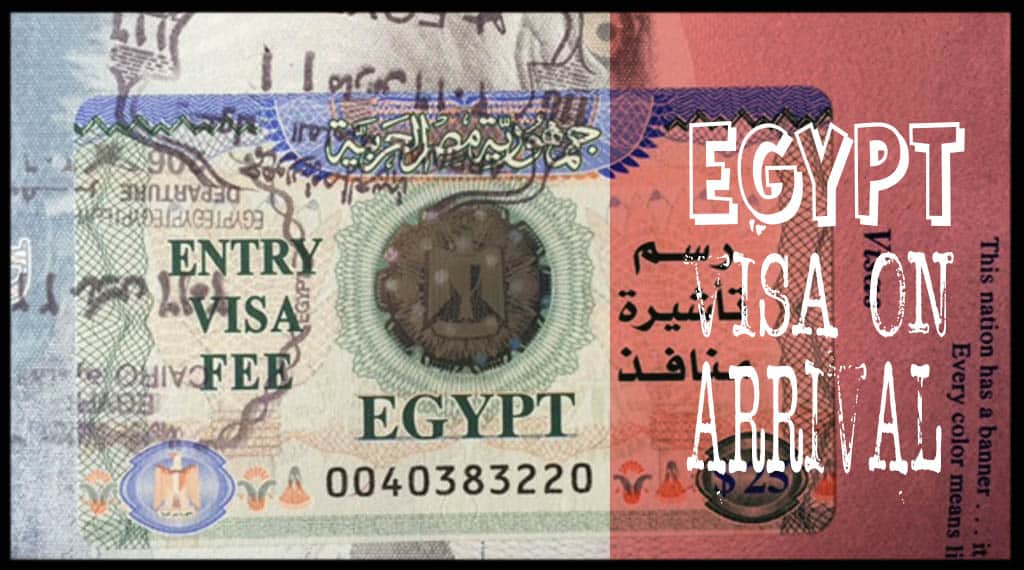
Information about the e-visa application process and who needs it
When planning a trip to Egypt, it's important to understand the country's visa requirements. Luckily, acquiring an e-visa is a relatively easy process that can be done online. "All travellers, except for those from visa-exempt countries, need to apply for an e-visa," according to the official website of the Embassy of the Arab Republic of Egypt in Washington, DC. Countries such as the United States, Canada, and Australia are among those that require visas for entry.
To apply for an e-visa, travellers must first create an account on the official e-visa portal. The application process requires personal and travel information, as well as a digital photograph of the applicant. The fee for an e-visa is USD 25, and processing can take up to seven days. It's important to note that the e-visa is only valid for a single entry and a maximum stay of 30 days.
For those planning to visit Egypt for a longer period or for multiple entries, a different type of visa may be necessary. "Those who are going to stay more than 30 days, work, study, or reside in Egypt must obtain a regular tourist or business visa from the nearest Egyptian embassy or consulate," explains the Embassy of the Arab Republic of Egypt.
It's recommended to apply for a visa a few weeks before your trip to ensure sufficient processing time. Having a valid visa is a crucial aspect of a successful trip to Egypt, so be sure to plan accordingly.
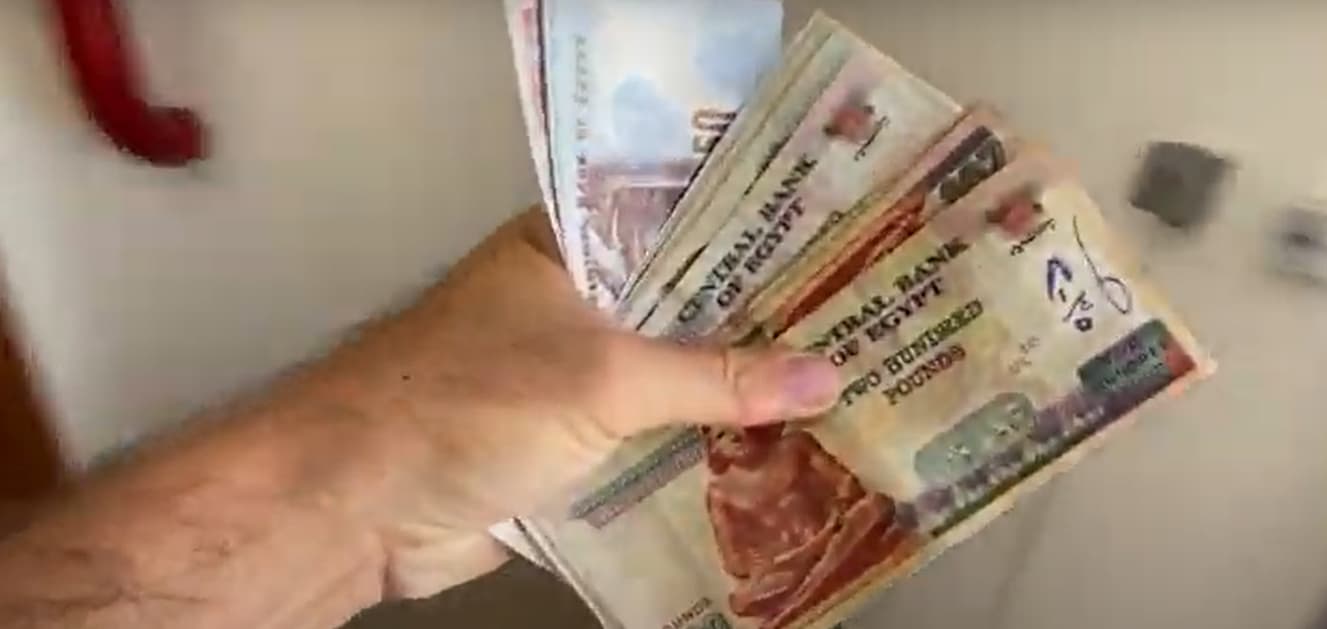
Information about the main currency used in Egypt and where to exchange or withdraw money
If you’re planning a trip to Egypt, it’s important to understand the country’s currency and how to handle it while travelling. Egypt’s main currency is the Egyptian pound (EGP), which comprises 100 piastres. The smallest denominations are 25 piastres and 50 piastres in both coin and note forms. Notes are available in denominations of 1, 5, 10, 20, 50, 100, and 200, with smaller notes especially useful for tipping. However, they are in increasingly short supply, so it’s a good idea to stockpile them when you can.
When exchanging currency, remember that the currency of Egypt is Arabic, but notes are bilingual, and the amounts are written in English on one side. The imagery reflects the country’s ancient history, with the 50-piastres note depicting Ramses II and the one and 100-pound notes depicting the Temples of Karnak and the Great Sphinx of Giza, respectively. You will often see prices preceded by the abbreviation LE, which is the French translation of the Egyptian pound. The currency is sometimes abbreviated as E£ or £E in online forums.
To ensure you have enough cash while in Egypt, it’s advisable to bring money in various forms, including cash, credit cards, and traveller's checks. ATMs are now common in large cities and tourist destinations, but some networks charge hefty transaction fees, so it’s best to check with your bank before leaving home. Banks and currency exchanges are found in all airports, and you can also exchange foreign notes at hotels and tour operators. When exchanging your money, it’s always a good idea to shop around for the best price and to ask for plenty of smaller denominations for paying for taxis and haggling in local markets. Avoid changing money on the street as there is no black market for hard currencies in Egypt. Keep your cash safe by concealing it in a money belt and keeping an emergency stash hidden in your luggage or hotel safe. Remember to always ask how much you will receive after all charges and commissions have been deducted before agreeing on a deal. [7][8]
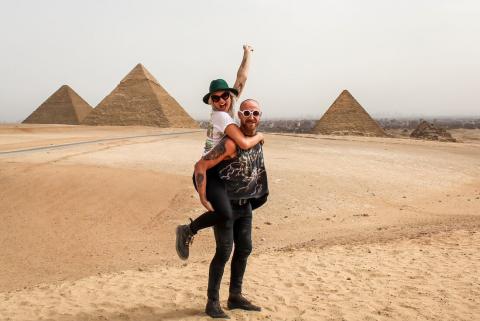
Overview of transportation options in Egypt, including taxis and public transportation
When it comes to getting around Egypt, travellers have plenty of transportation options. From buses and taxis to shared taxis and trains, Egypt has an extensive transport system that allows visitors to navigate the country with ease.
Egyptian public transport is pretty good, and there is an efficient rail network linking the Nile Valley Delta and Canal Zone. Trains are perfect for visiting the Nile Valley, allowing access through much of the Nile Valley and arriving in major cities like Cairo. Special Service and the considerably cheaper Speed AC Spanish trains on this major route have comfortable first and second-class air-conditioned carriages. Trains also offer a comfier alternative to buses and taxis for long hauls, while buses and shared taxis are best for shorter journeys and are slower and less reliable.
For those in a hurry, EgyptAir provides a network of domestic flights. However, if you plan on travelling to restricted areas in the eastern and western deserts, you may need permits obtainable from Military Intelligence or authorized travel agencies. It's also important to note that due to decades of neglect, Egypt's rail network has a higher accident rate than many other countries, and several high-profile railway accidents in recent years have finally pushed the government into action to modernize the system.
If you prefer taxis, they are readily available at taxi ranks and can be hailed on the street. Taxis are metered and can be a bit pricey, but they offer convenient and comfortable transport. When using taxis, it's important to agree on a price beforehand and carry small bills to pay for the ride.
Overall, Egypt's transportation options make it easy for travellers to explore the country, and whether by train, bus, taxi, or plane, visitors will surely have a memorable and comfortable travel experience. [9][10]

Tips for communicating with locals and understanding the language barriers
One of the biggest challenges when travelling to a foreign country is language barriers. Here are some tips to help you communicate with locals more effectively and overcome these barriers:
- Learn the basics: Before your trip, practise some basic phrases and words in the local language. This will help you navigate common situations, such as ordering food or asking for directions. Use language apps like Duolingo to get started.
- Practice pronunciation: Mastering pronunciation is just as important as learning the words themselves. Practice speaking the language out loud to get a feel for the sounds and intonations. Take advantage of language classes offered by your hostel or hotel if available.
- Use body language: Nonverbal cues can help bridge the gap when words fail. Use gestures, facial expressions, and even drawings to convey your meaning when you don't know the right words.
- Be patient: Language barriers can be frustrating, but remain patient and understanding. Locals will appreciate your effort to communicate, even if it's imperfect.
- Seek out help: When all else fails, don't hesitate to ask for help. Locals are often happy to offer assistance, whether it's pointing you in the right direction or helping you order at a restaurant.
Remember, language barriers are a common part of travel and shouldn't deter you from exploring new places. Keep an open mind and a positive attitude, and you'll be surprised how much you can communicate even without knowing the language perfectly. As the famous quote goes, "The limits of my language mean the limits of my world." So, embrace the challenge and expand your world! [11][12]
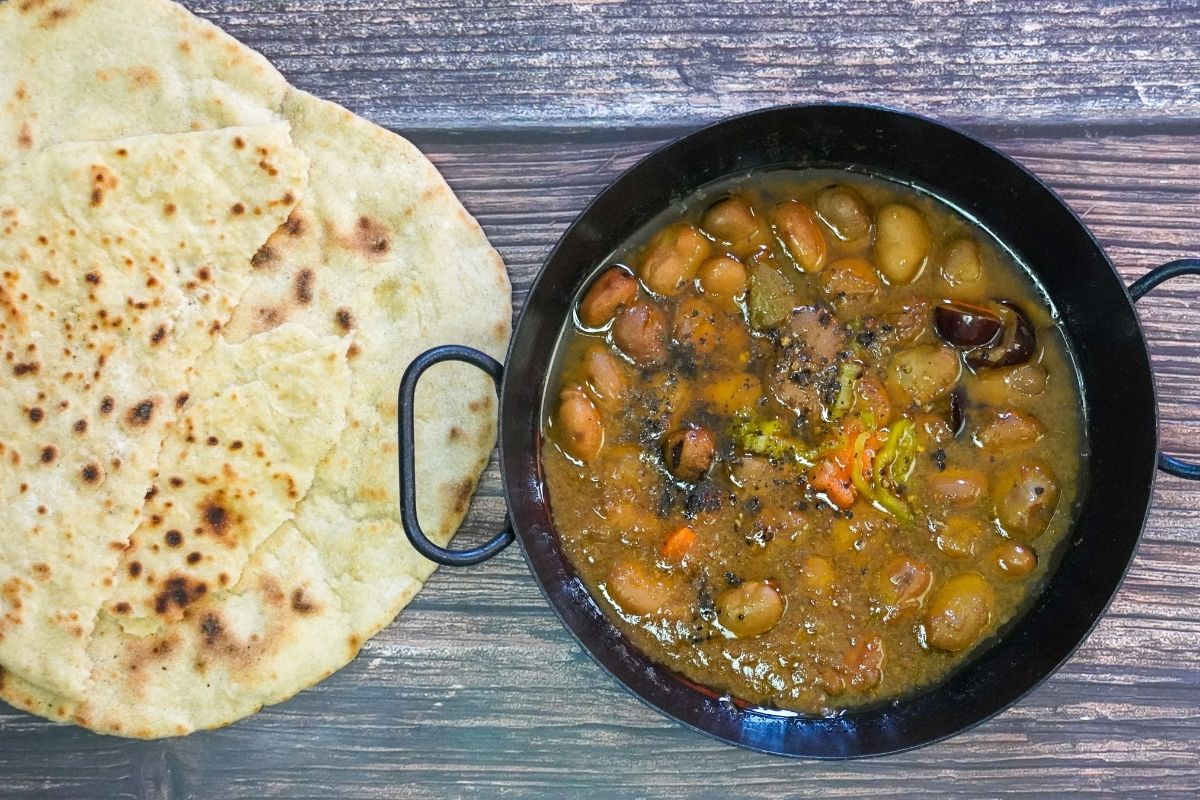
Information about traditional Egyptian cuisine and popular drinks
Egyptian cuisine amalgamates various influences from neighbouring countries like Greece, Syria, Turkey, Lebanon, and Palestine. Each dish is a reflection of the country's rich culture and history. One of the most loved dishes is a stuffed pigeon, which is roasted after being filled with rice or ferek (green wheat). Kofta bil Tamatem is another popular dish that consists of small balls of ground meat cooked in tomato sauce and served with rice and roasted pine nuts.
Bread is an essential part of every meal for Egyptians, and Aish or pita bread is considered their life. It is made by mixing wholemeal and white flour and baking it near an open flame. The bread is used to scoop up food or to make sandwiches with taameya or shawarma. Ta'amiya, or falafel, a popular Egyptian snack food, is sold by vendors and small shops all over Egypt. It is made of rice, lentils, fried onions, and pasta cooked in tomato sauce and is usually spicy, and sometimes vinegar and garlic are added.
Fava beans or ful medames are a traditional breakfast dish typically served with aish. Tea is Egypt's national drink, while coffee is part of the traditional welcome. Karkadeh, a drink made from boiling dried red hibiscus flowers, is high in vitamin C and minerals and is enjoyed hot as herbal tea. Aseer asab, or sugar cane juice, is another popular drink found in almost all fruit juice vendors.
Egyptians have a sweet tooth, and sweets and desserts are common in their tradition after every meal. Basbousa is a delicious dessert that crosses the border and originates from the Ottoman Empire. The Egyptian version is thin, soaked in sweet syrup, soft inside, and covered with almonds and whipped cream. Another must-try dessert is kanafeh, a cake made by rolling and flattening semolina pasta, which is cooked over low heat with butter and cream cheese and soaked in syrup.
Egyptian cuisine is a delectable blend of flavours, and trying different kinds of Egyptian food is very much worth the experience. From falafel to kofta and from ful medames to basbousa, every dish is a treat to the taste buds. So, while planning your Egypt tour, add trying traditional Egyptian cuisine and popular drinks to your bucket list. [13][14]
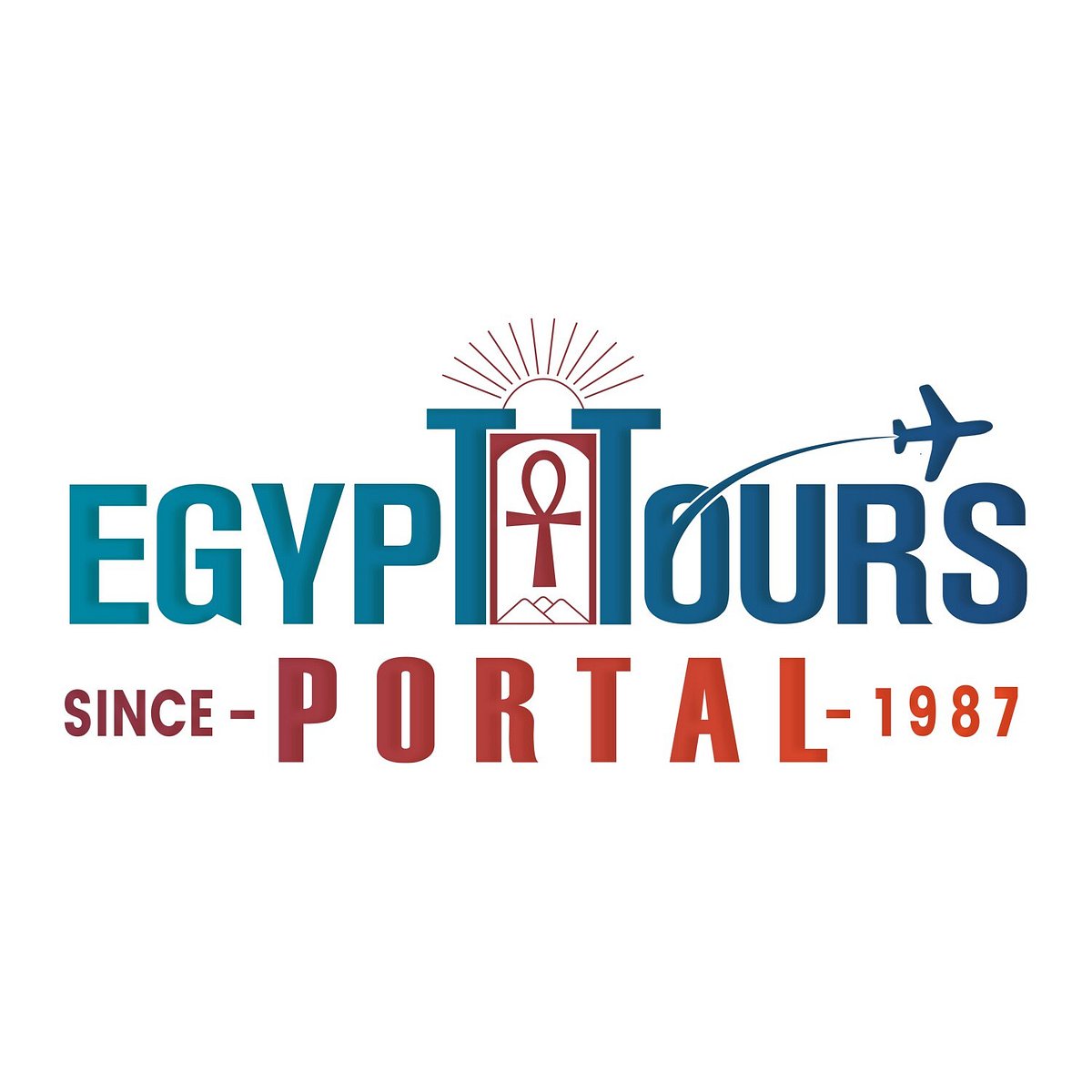
Overview of popular accommodation options in Egypt, including hotels and hostels
Egypt offers a wide range of accommodation options for travellers, from luxury palaces to homely pensions and backpacker havens. The main tourist centres provide a broad spectrum of places to stay, and even in the high season in Cairo, Sinai or the Nile Valley, visitors should be able to find something in their preferred range. Accommodation prices can vary throughout the country, with Cairo generally being more expensive for all types of lodging.
Egyptian hotels are categorized into star ratings, ranging from one-star to five-star deluxe. Below this, there are also unclassified hotels and some tailored to foreign backpackers, while others are mostly used by Egyptians. Most hotels are modern and chain-owned, with facilities including swimming pools, bars, restaurants, and air conditioning. However, there are also a few characterful hotels, including famous names like the Winter Palace in Luxor.
For a more budget-friendly option, there are also hostels, which are generally cheaper. Egypt’s twelve official youth hostels are cheap but have daytime lock-outs and night-time curfews. Meanwhile, campsites attached to hotels may offer ready-pitched tents with camp beds, plus the use of hotel showers and toilet facilities.
It’s important to be aware of touts, who approach new arrivals at train and bus stations, airports and docks. In Cairo, especially, many touts work for hotels that exist purely to hold foreigners and sell them overpriced excursions or souvenirs. To avoid falling into a trap, it's advisable to book upmarket hotels at the top of the range, which are invariably much cheaper if booked from home through a travel agent or online.
For those seeking a more authentic experience, some cheaper hotels are classified as 'pensions', which suggests family ownership and a friendlier ambience. When fishing for guests, touts usually direct new arrivals to hotels that are grotty and overpriced. Therefore, it's best to avoid their services and stick to reputable sources. [15][16]
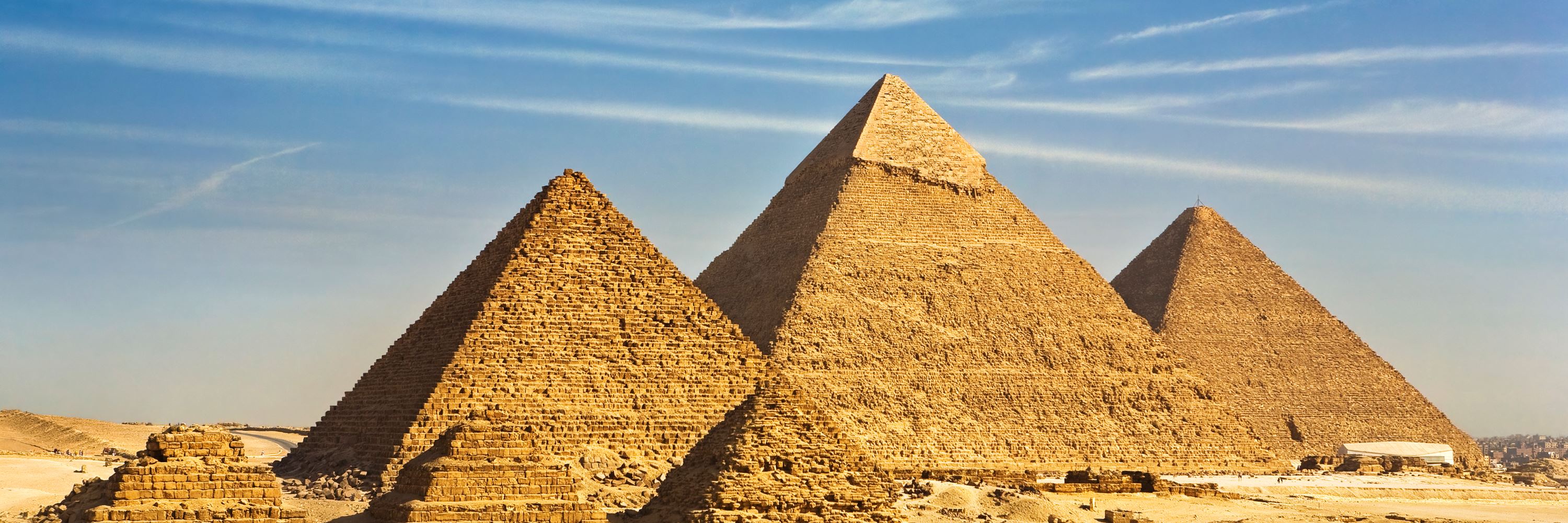
Information about the top tourist destinations in Egypt, including the Pyramids of Giza and the Nile River
Regarding tourism, Egypt is home to some of the most iconic destinations in the world. There are several places that every traveller should visit, including the Pyramids of Giza and the Nile River, which are must-sees when visiting Egypt.
The Pyramids of Giza is one of the Seven Wonders of the Ancient World and arguably Egypt's most popular tourist destination. As the only wonder that still exists today, it is a testament to the engineering prowess of ancient Egypt. Visitors are wowed by the sheer size of the pyramids, which can be explored from the inside. According to Earth Trekkers, "Khufu's pyramid is the one you can enter at the moment."
The Nile River is another must-see in Egypt. It is the longest river in the world, so it's very difficult to explore all of its beauty in one trip. Visitors can choose to cruise along the Nile, an excellent way to get the best views of Egypt's ancient temples and monuments. The Nile River has been the lifeblood of Egypt for centuries, and it remains an essential part of Egypt's culture and history.
In addition to these iconic destinations, several other places are worth visiting in Egypt. Luxor, the pharaoh's capital between the 16th and 11th centuries BC, contains several ancient tombs and vast temple complexes. The Karnak temple complex is the largest religious building ever built, while the Valley of the Kings is home to many of the pharaoh's burial chambers, some of which are open to the public. Alexandria, Egypts second-largest city, contains beautiful artifacts dating back to the Greco-Roman era, including the famous Lighthouse of Alexandria.
Travellers should plan well and do their research when visiting Egypt to make the most of their trip and enjoy these fantastic destinations. As Tim and Tyler from Earth Trekkers suggest, "spend a day or two walking through Old Cairo and getting a history lesson at the Egyptian Museum" to immerse themselves in Egypt's rich culture and history truly. [17][18]
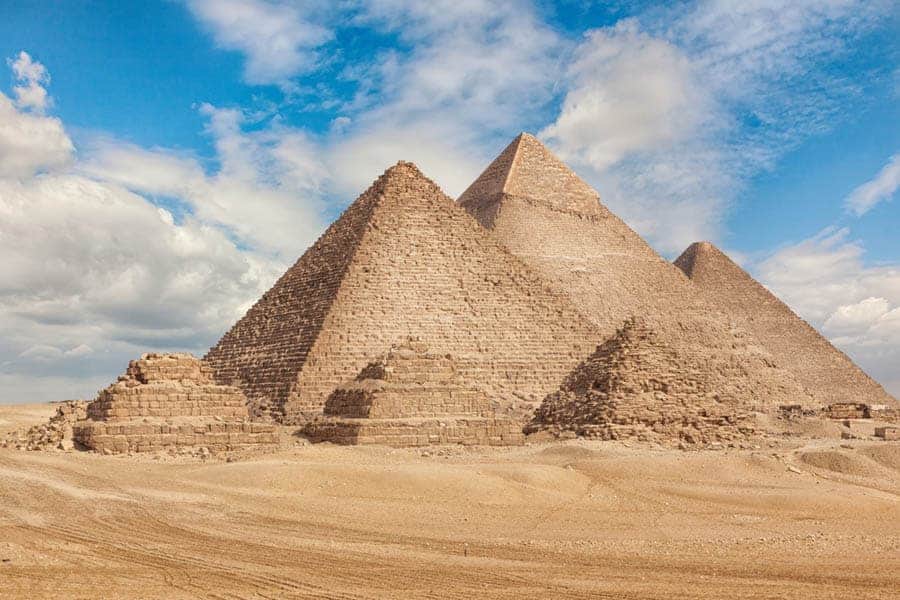
Tips for respecting Egyptian culture and customs while travelling
When travelling to Egypt, respecting the local culture and customs is important. Here are some tips to ensure your trip is enjoyable and memorable while showing respect towards Egyptian people and their traditions.
- Dress conservatively: Although there is no specific dress code in the cities, it is respectful to cover your shoulders and avoid wearing shorts, especially when visiting mosques and churches. This becomes even more relevant when visiting more conservative parts of the country, such as rural areas or smaller towns.
- Avoid public displays of affection: Kissing, hugging, and other forms of affection are not considered appropriate in Egypt. It is best to avoid these actions, even with spouses or significant others, while in public.
- Respect religious customs: Egypt is predominantly Muslim, and visitors should not disrupt or disrespect the local customs. This includes not eating, drinking, or smoking in public during Ramadan, when many locals are fasting.
- Remove shoes inside homes and mosques: When entering homes and mosques, it's customary to remove shoes. It is also respectful to avoid pointing the soles of your feet towards people or religious objects.
- Ask for permission before taking photos: Although most Egyptians are happy to share their culture and traditions with visitors, asking for permission before taking photos of people or religious sites is respectful.
- Don't touch monuments and historical sites: It is essential to respect the historical heritage of Egypt and to refrain from touching, sitting on, or scratching ancient monuments or historical sites.
In summary, Egypt offers a rich and diverse culture worth experiencing. By respecting local customs, you can make your trip unforgettable and simultaneously showcase your appreciation for the country and its people. Remember, as Intrepid Scout states, "Respect is the universal language of travel." [19][20]
